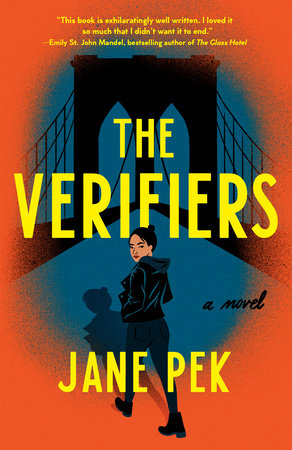
Written by Stephen Hong Sohn
Edited by Corinna Cape
*reviewer’s note: In my aim to cover as much ground and texts as I can, I’m focusing on shorter lightning reviews that get to the gist of my reading experience! As Asian American literature has boomed, my time to read this exponentially growing archive has only diminished. I will do my best, as always!
In this lightning review, I cover Jane Pek’s The Verifiers (Knopf Doubleday 2022)! Let’s let the official marketing description get us off the ground here: “Claudia is used to disregarding her fractious family’s model-minority expectations: she has no interest in finding either a conventional career or a nice Chinese boy. She’s also used to keeping secrets from them, such as that she prefers girls—and that she's just been stealth-recruited by Veracity, a referrals-only online-dating detective agency. A lifelong mystery reader who wrote her senior thesis on Jane Austen, Claudia believes she's landed her ideal job. But when a client vanishes, Claudia breaks protocol to investigate—and uncovers a maelstrom of personal and corporate deceit. Part literary mystery, part family story, The Verifiers is a clever and incisive examination of how technology shapes our choices, and the nature of romantic love in the digital age.”
This novel was a really surprising read. I finished it over three or so nights and was continually surprised in the way that it continued to evolve. Pek is clearly a big fan of mysteries, much like her protagonist Claudia, who is our plucky first person storyteller. Pek knows how to create the mystery, draw out the mystery, throw in a bunch of red herrings, and then complicate the mystery even further. There are a bunch of references to canonical novels, so that’s another great element. The conclusion to this one is a bit open-ended, and it makes you wonder if Claudia could exist at the core of an entire series. The other element that I really enjoyed was Pek’s deep dive into apps and artificial intelligence in relation to matchmaking. I didn’t expect such a robust engagement with the technological side of the matchmaking world, and I came to find so much to sink my readerly teeth into. A wonderfully plotted detective novel with an engaging first person narrator. I definitely recommend this one for a plane ride or a day at the beach or pool.
Buy the Book Here


